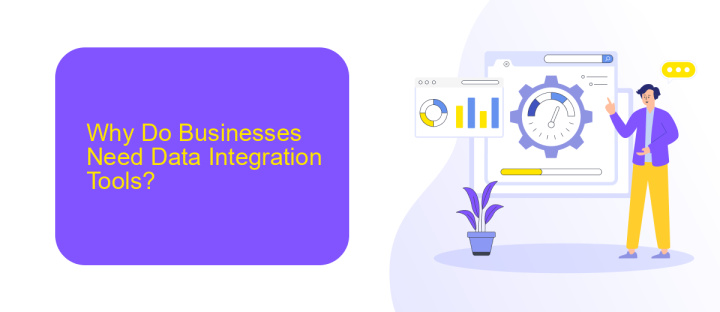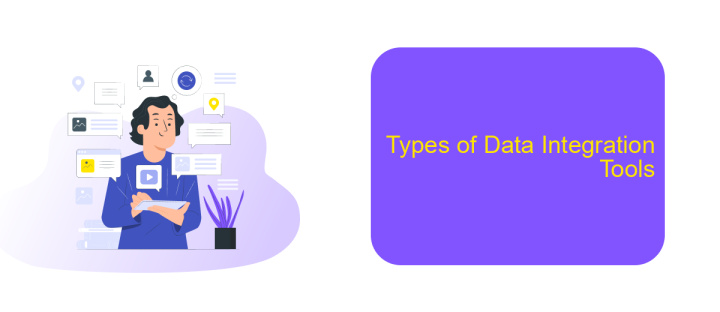What Are Data Integration Tools
Data integration tools are essential for businesses looking to streamline their data management processes. These tools help consolidate data from various sources, ensuring consistency and accuracy. By enabling seamless data flow between systems, they enhance decision-making and operational efficiency. In this article, we will explore the different types of data integration tools and their benefits for modern enterprises.
What Are Data Integration Tools?
Data integration tools are essential for combining data from different sources into a unified view, enabling businesses to make informed decisions. These tools help streamline workflows, improve data quality, and ensure consistency across various platforms.
- Data Extraction: Pulling data from various sources such as databases, APIs, and flat files.
- Data Transformation: Converting data into a consistent format for analysis and reporting.
- Data Loading: Inserting the transformed data into a target system, such as a data warehouse.
- Data Monitoring: Ensuring data integrity and quality through continuous monitoring and validation.
One of the popular data integration tools is ApiX-Drive, which simplifies the process of connecting various applications and automating data workflows. With ApiX-Drive, businesses can easily set up integrations without requiring extensive technical knowledge, making it an excellent choice for organizations looking to enhance their data management capabilities.
Why Do Businesses Need Data Integration Tools?

In today's data-driven world, businesses generate and collect vast amounts of data from various sources. To make informed decisions, it is crucial to have a unified view of this data. Data integration tools help businesses consolidate information from disparate systems, databases, and applications into a single, cohesive data repository. This not only improves data accuracy and consistency but also enhances the efficiency of business processes by providing a holistic view of operations, customer interactions, and market trends.
Moreover, data integration tools like ApiX-Drive facilitate seamless integration between different platforms and services without the need for extensive coding or technical expertise. By automating the data integration process, businesses can save time and reduce errors associated with manual data handling. This enables companies to focus on strategic initiatives rather than getting bogged down by data management challenges. Ultimately, leveraging data integration tools empowers businesses to optimize their operations, improve decision-making, and gain a competitive edge in the marketplace.
Benefits of Using Data Integration Tools

Data integration tools offer a multitude of benefits that streamline business processes and enhance decision-making capabilities. By automating the integration of data from various sources, these tools save valuable time and resources, allowing organizations to focus on core activities.
- Improved Data Quality: Integration tools ensure that data from different sources is consistent and accurate, reducing errors and discrepancies.
- Enhanced Efficiency: Automating data workflows eliminates manual data entry, minimizing the risk of human error and speeding up processes.
- Better Decision-Making: With real-time data integration, organizations can access up-to-date information, leading to more informed and timely decisions.
- Scalability: These tools can handle increasing amounts of data as your business grows, ensuring seamless operations.
- Cost Savings: By reducing the need for manual data handling and improving operational efficiency, data integration tools can lead to significant cost reductions.
One such tool, ApiX-Drive, offers a user-friendly platform for setting up and managing data integrations without requiring extensive technical knowledge. With its intuitive interface and robust features, ApiX-Drive simplifies the process, making it accessible to businesses of all sizes. By leveraging data integration tools like ApiX-Drive, organizations can unlock the full potential of their data, driving growth and innovation.
Types of Data Integration Tools

Data integration tools are essential for combining data from different sources into a unified view. These tools help organizations streamline their data management processes, ensuring data consistency and reliability. Various types of data integration tools are available, each designed to meet specific needs and use cases.
Some tools focus on real-time data integration, allowing businesses to access and analyze data as it is generated. Others are designed for batch processing, where data is collected and integrated at scheduled intervals. Additionally, there are tools that specialize in cloud-based data integration, enabling seamless data flow between cloud applications.
- ETL Tools: Extract, Transform, Load tools are used for data warehousing and analytics.
- Data Replication Tools: These tools replicate data from one database to another, ensuring data consistency.
- API Integration Tools: Tools like ApiX-Drive facilitate the integration of various applications through APIs.
- Data Virtualization Tools: These tools provide a virtual view of data from multiple sources without physical data movement.
Choosing the right data integration tool depends on the specific requirements of your organization. For instance, ApiX-Drive offers a user-friendly platform for integrating various applications through APIs, making it an excellent choice for businesses looking to automate and streamline their workflows.


How to Choose the Right Data Integration Tool
Choosing the right data integration tool involves evaluating several key factors. First, consider the specific needs of your organization, such as the types of data sources you need to integrate, the volume of data, and the frequency of data transfers. It's also crucial to assess the tool's compatibility with your existing systems and its ability to scale as your business grows. User-friendliness and ease of implementation are other important aspects to consider, as they can significantly impact the time and resources required to get the tool up and running.
Additionally, look into the support and documentation provided by the tool's vendor. Reliable customer support can be invaluable when troubleshooting issues. Cost is another critical factor; compare the pricing models of different tools to find one that fits your budget. For example, ApiX-Drive is a versatile service that simplifies the integration process, offering a user-friendly interface and robust support, making it an excellent option for businesses of all sizes. By carefully evaluating these factors, you can select a data integration tool that best meets your organization's requirements.
FAQ
What are data integration tools?
Why are data integration tools important?
What features should I look for in a data integration tool?
How can data integration tools help with automation?
What are the challenges of using data integration tools?
Apix-Drive will help optimize business processes, save you from a lot of routine tasks and unnecessary costs for automation, attracting additional specialists. Try setting up a free test connection with ApiX-Drive and see for yourself. Now you have to think about where to invest the freed time and money!

